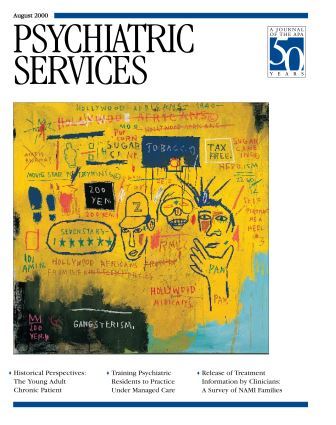Dr. Shea attempts to teach his readers how to make suicide assessment both practical and artful. In the process, he brings the reader inside the experience of the suicidal patient with frank talk about jarring human experiences, and he gives much useful advice about interviewing. Nonetheless, he has written a book that is only partly successful.
This book is more story-driven than data-driven. Shea frequently refers to the professional suicide literature, but the backbone of the book is a series of case histories from the public domain—for example, the suicides of Elizabeth Siddal, Sylvia Plath, and Kurt Cobain—and from his clinical practice. It is not a bad strategy—stories are important—but the writing style is unnecessarily melodramatic. Shea is too big a presence in his book; he sometimes gets in the way of the stories he is trying to tell.
Shea's exuberant language leads him to problems of emphasis in relation to suicide prediction and prevention. He accurately indicates that we cannot predict suicide. He describes the importance for good treatment of understanding a client's ambivalent attachment to life, along with the influences of environmental pressures, cognitive style, character structure, and neurobiology. However, he undermines this good teaching with unsupportable statements. He says we can identify cognitive styles that put patients at risk. He expresses an opinion about the three "most useful indicators" of immediate suicide risk without backing up this assertion. He sets up biologists as straw men, stating that "biologic reductionists tremble at the suggested use of psychotherapy … and shudder at the mention of the word soul." Blending therapeutic zeal with fact, Shea makes himself less credible by overreaching, diminishing what is on target in the book.
Shea's excellent interview scripts are the most rewarding reading in the book. He rightly points out that relatively little has been written about eliciting suicidal ideation. He demonstrates how to respond in challenging situations by developing lines of questioning that will draw out uncomfortable material. He appropriately stresses the advantage of seeking details of thought and behavior, not just of symptoms or demographics. He includes at least 30 numbered lists covering points to remember, suggested questions to ask, and subjects to pursue with clients. The interviewing techniques described here are as useful for general evaluations as they are for assessing suicide risk.
Shea offers his CASE method—Chronological Assessment of Suicide Events—as an easy-to-learn and easy-to-remember strategy for organizing a potentially large body of information. Any systematized inquiry can decrease errors of omission. Although his chronological interviewing format is more complicated than it first appears, it dovetails nicely with suggestions made throughout the book. Recognizing that few people are likely to put his method into practice, he invites readers to adapt his ideas to their own style.
Shea's reputation as a teacher of interviewing technique is well deserved. The Practical Art of Suicide Assessment is worth reading for what it teaches about detailed interviews of suicidal individuals. However, with its problems interpreting the suicide literature, it does not serve as an authoritative guide to making suicide assessments.

